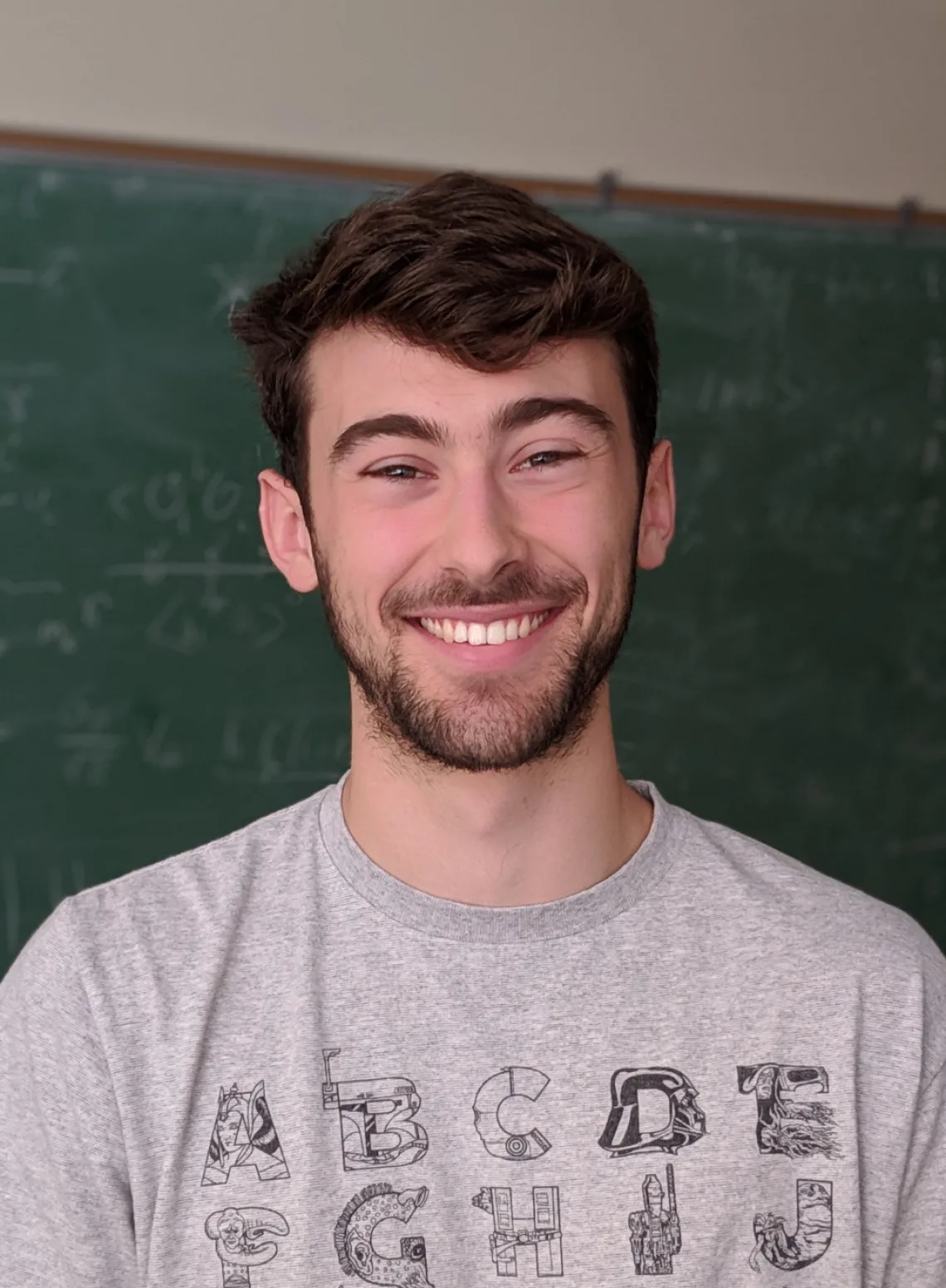Christopher Kane receives DOE Computational Science Graduate Fellowship

Christopher Kane, a first-year physics graduate student, has been awarded a Department of Energy Computational Science Graduate Fellowship (DOE CSGF). This highly competitive fellowship provides a generous yearly stipend, full tuition, and an academic allowance, for up to four years. The program was established in 1991 to train the country's next generation of leaders in computational science. Fellowship recipients take courses in computer science and applied mathematics in addition to the courses in their primary subject. The program also includes a three-month practicum at one of 21 Department of Energy National Laboratories or Sites.
Four students at the University of Arizona have previously won a DOE CSGF, and Chris is the first new recipient since 2001. He is among 26 fellows selected from across the nation to join the program in 2019.
Chris, who is advised by Professor Stefan Meinel, will use computational methods to search for signs of new fundamental physics beyond the Standard Model of particle physics. At low energy scales, pen and paper methods fail at describing the complex nature of how quarks and gluons interact with each other. With the aid of some of the world’s fastest supercomputers, lattice quantum chromodynamics can be used to perform these calculations. The theoretical predictions can then be compared to experimental measurements and provide hints that will help solve some of the outstanding problems in physics.
"I am very grateful for the support and excited about all the opportunities that this fellowship provides", Chris said.



